Preschool Science Experiments
In the A to Z Science series for toddlers and preschoolers, E is for Experiment. I listed some examples of toddler and preschool science experiments. I also talked about how to turn investigations and explorations into experiments. I wanted to give you another sample list of preschool science experiments from around the web.
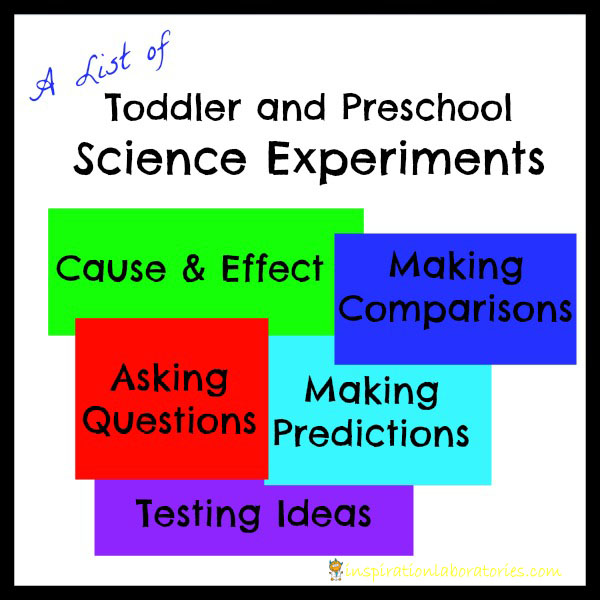
Preschool Science Experiments
Cause and Effect
An experiment requires changing something and observing what happens. If I do this, then this will happen. {That’s the basis for a hypothesis by the way.} Make observations. Change something. Make more observations. Here are examples of experiments that use cause and effect {change and result}.
How does adding soap affect the reaction with baking soda and vinegar? This was a guest post by me at Growing a Jeweled Rose.
Tinkerlab figured out how much salt needed to be added to make an egg float in this preschool science experiment.
Lessons Learnt Journal observes that air takes up space because of how they changed their set up.
Learn with Play at Home also teaches about air taking up space while creating a water bottle fountain.
How many trains does it take to knock over the tower? Learn about chain reactions while exploring ramps.
Making Comparisons
Create an idea for a preschool science experiment by asking a question. Sometimes these questions lead you to compare things. Which weighs more? Which is more dense? What objects float in water? Who is faster? These types of experiments are also great for simple graphing practice. {They’re usually bar graphs.} Here are some examples of comparisons.
Which is heavier? Science Sparks sets up an investigation to compare the weight of different household items.
Which will erupt? No Time for Flashcards created this comparative science lesson with different powders.
Which direction will it travel? Kids Activities Blog experiments with a paper airplane design to see what effect a small change will have on the direction of flight.
What melts ice the fastest? Mom to 2 Posh Lil Divas observes which substance {out of 5} melts ice the fastest.
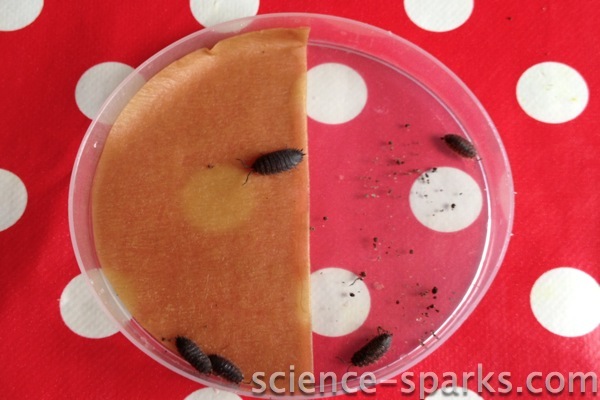
Which do they prefer? A great example of how to set up animal behavior experiments from Science Sparks. Investigate which habitat an organism prefers using choice chambers.
Which works best? Kids Activities Blog explores ramps by comparing different balls and finding out how best to roll the balls into the basket.
What dissolves in water? hands on: as we grow tested items from the pantry to determine what would dissolve in water.
Keep in Mind
Toddler and preschool experiment set ups do not have to be formal ones complete with hypotheses {formal predictions}, obvious variables {things being changed}, written data collection, and formal conclusions. When toddlers and preschoolers do science, they will tend to create experiments on their own. They will ask questions. They will make predictions. They will test their ideas. They will collect data {even if only in their head}. They will develop conclusions. Providing experiences where they can work on these skills is essential to science learning. Teach Preschool talks about science in the preschool classroom and what you can do to facilitate it.
Most of your favorite science activities can be easily turned into an experiment. Remember to ask questions, make observations, and test ideas.
Don’t miss the rest of the A to Z Science series! Connect with Inspiration Laboratories on Twitter, Google+, Pinterest, or Facebook.

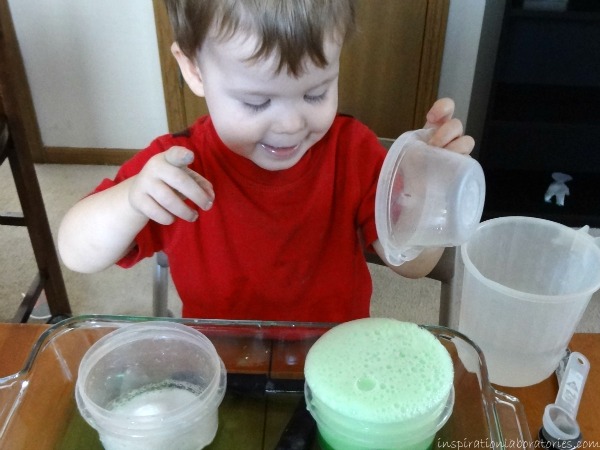
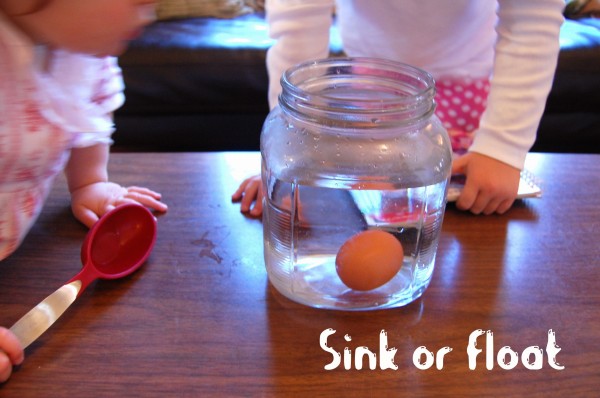
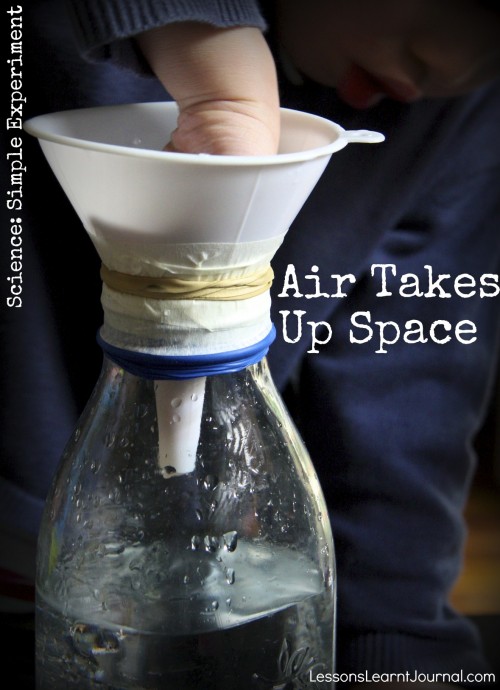
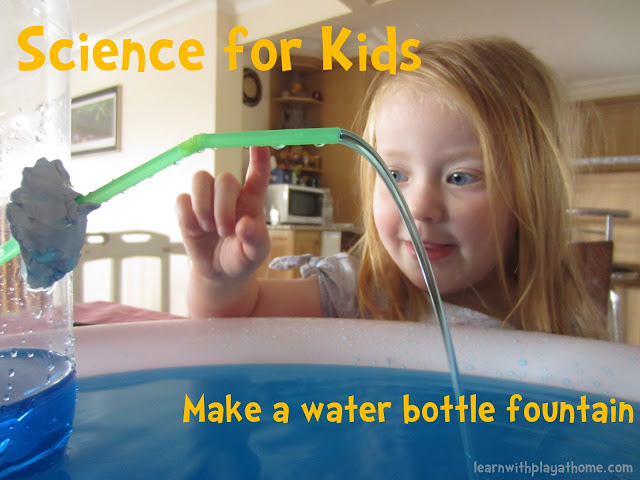

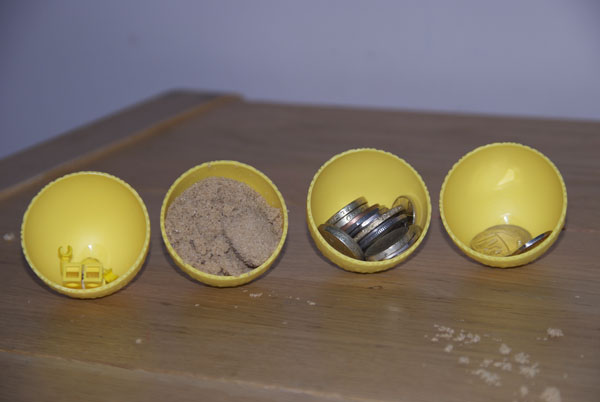
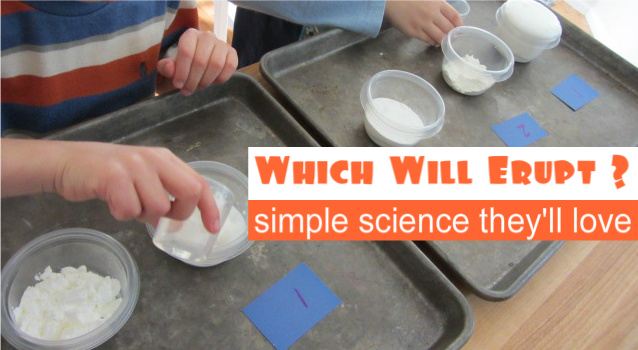
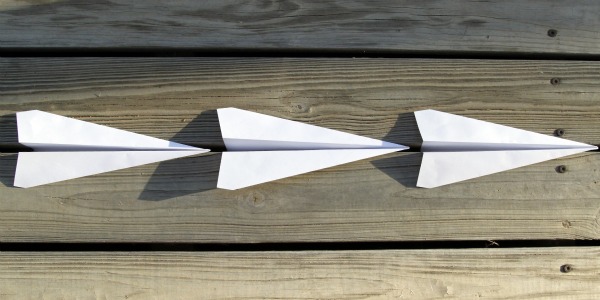
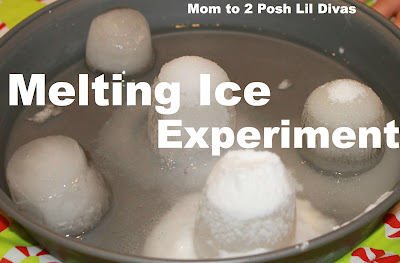
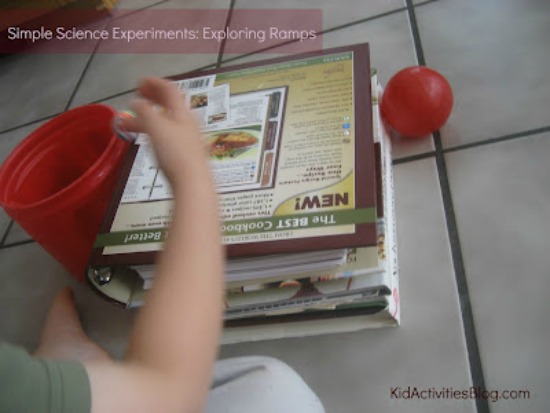
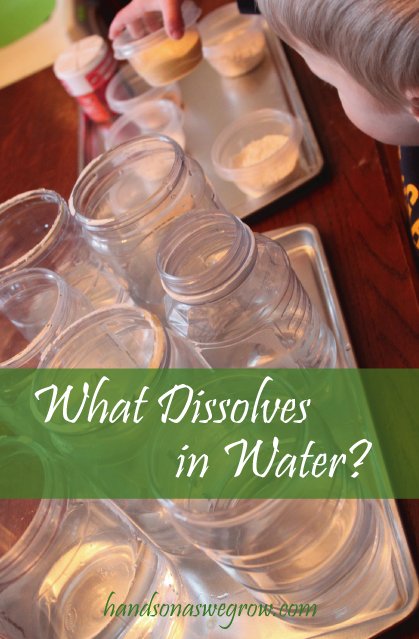
Leave a Reply